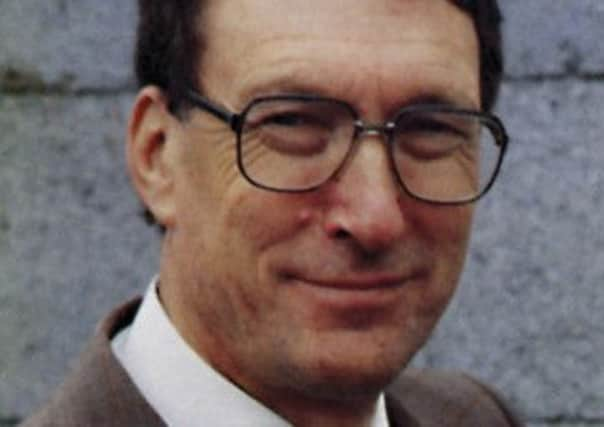Antony Slater


Today’s Plasmor group of companies has its origins in 1959 when Mr Slater and his wife-to-be Patricia Aitchison registered a company of that name following a chance meeting with a quarry owner who was in financial difficulties.
As a result of that meeting, Mr Slater bought a limestone quarry on Womersley Road in Knottingley, his idea at the time to make ready-mix plaster and mortar. However, while viewing some second-hand plant to make the products he planned, he had a change of mind.
Advertisement
Hide AdAdvertisement
Hide AdHe had seen a block making machine, and it gave him a new idea. He was aware that a new generation of coal-fired power stations was planned for the lower Aire Valley, and he knew they would produce large quantities of furnace ash, ideal for manufacturing lightweight building blocks.
The creation of Plasmor Building Blocks was the result.
Over the next decade the company expanded rapidly, its growth fuelled by a large council-house building programme and facilitated by Mr Slaters’ ability to design, build and run modern fully-automated manufacturing plants.
Mr Slater was born in Skellow, South Yorkshire, his family later moving to Brayton near Selby to be nearer its sand and gravel quarry business. From the local primary school, he went to Hillhouse Prep School in Doncaster and then Red House School near York.
As war loomed, Mr Slater went to Malvern College in Worcestershire where he joined the air cadets and excelled academically. He went on to read General Science at Durham University but his real interest by now was in the university’s air squadron.
Advertisement
Hide AdAdvertisement
Hide AdNational Service was still required and as soon as his course had finished, he passed aircrew selection and joined the RAF to train as a pilot. After initial training in the UK, he was among an elite group sent to Canada to learn to fly fast jets with the Royal Canadian Air Force. He came out top of the class, winning the Siddeley Cup, and went on to fly the brand new Lockheed T33 Silver Star fighter jets.
He completed his National Service back in the UK at RAF Driffield, flying Meteors.
Although the RAF wanted him remain in the service, his ambition was to run his own business. Leaving, he formed a haulage company, Whitley Construction, using a natural talent for engineering to renovate ex–government trucks. And it was about this time - 1958 – that he met his future wife.
By 1970, Plasmor was operating three plants at Womersley Road, and sales were £10m. Expansion continued at a new site at Great Heck near Selby which became home to two of the largest block manufacturing plants in Europe, capable of producing 20 million blocks per year.
Advertisement
Hide AdAdvertisement
Hide AdBy the 1980s sales were approaching £25m and Mr Slater saw new opportunities following the recession, buying two block-making businesses in the North East and the North West.
He also developed a train-based distribution system to transport the company’s products into the more lucrative South East markets. And the company diversified into manufacturing paving products, launching its successful Plaspave brand.
At the turn of the millennium, Mr Slater saw new opportunities again and took Scandinavian technology to develop a lightweight aggregate manufacturing business using clay as a raw material. The move opened up new markets in civil engineering and hydroponics.
Sailing was a passion which success in business allowed him to indulge, and he made numerous voyages along the East Coast. In later years he and his wife were active members of the Bentley Drivers Club and attended many rallies in their 1934 Park Ward Bentley which he had restored.
He is survived by his wife and their daughter Elspeth, son Julian, who now runs the family businesses, and four grandchildren.